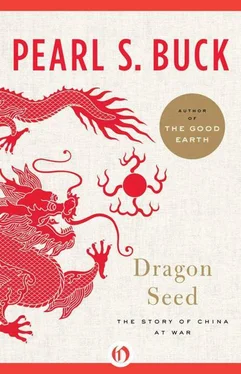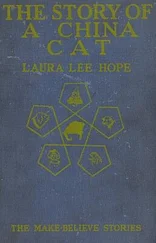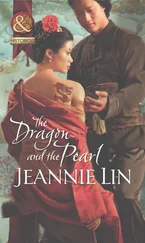Lao Er’s face went slack at this question.
“Curse me for a fool,” he said, “I never did think to ask who the enemy was!”
And he was dazed for a while at his own stupidity.
… But all that happened in the city was very far from these who lived in this house. Night fell there as it always did and they ate and made ready for sleep as on any other night and each felt in his own way that here on the land nothing could be changed, whatever folly the city people committed against each other. Ling Tan and his wife talked together for a little while before they slept, anxious for their elder daughter, and Ling Tan said he wished that he had given her after all to a farmer with half the promises that Wu Lien had made. But his wife would not agree to this.
“She is no longer of our house,” she told her husband, “and what happens to her is her husband’s business now since she has given him two sons. Tomorrow if they are in trouble they will find a way to send us word and then we will see if there is need to worry.”
He listened to this and willingly put his worry aside, and soon over these two stole the quiet of the house in which they had lived so many years and the quiet of fields they had tended so long, to which they trusted for food and for all they needed. Whatever befell, the earth which they owned was theirs and would feed them.
And Lao Ta in his room where he lay on his bed with his wife while she suckled her child to sleep told her what he thought of the thing that had happened to his sister’s husband.
“Such things come of foreign learning,” he told her. “These students, nowadays, they do not know the ancient righteousness and they have no measure whereby to measure themselves. This seems right to them today and that tomorrow and they do not know that one man’s mind cannot say what is the true right for another. No, in their pride of a little learning they rush out to do evil like this.”
“We will never let a child of ours go to those schools,” his wife murmured, and fell asleep with the babe still tugging at her breast.
“We will not,” he agreed and lay thinking further. He thought slowly and with difficulty and sweated at it as though he were plowing a rough field behind the water buffalo. At last, having made a thought, he spoke it aloud for his wife to hear. “A man should stay in his own house,” he said, “if he stays in his own house and does the work he knows how to do and cares for his own, who can destroy him? If every man so behaves himself, what enemy can prevail against the nation?”
He waited for his wife to agree with this but first there was only silence and then came the sound of her gentle snore. He felt a little angry that his wisdom was so wasted but he was too good-hearted a man to wake her as some men would because she slept before he did, and so he let his hard thinking subside, and soon the quiet of the house stole over him too, and he slept.
And Pansiao, who spent her days at the loom, who never went to the city, she could not imagine the thing she had heard and it was so strange it went out of her mind like a dream told. In the house she had been kept a child. She was the last born and born indeed so late that her mother had been ashamed. To conceive, to bear a child when Ling Sao was more than forty years old had made everyone who heard of it smile, and in the village the women called out to her as she grew big:
“What vigor, old one!” and they laughed and said, “a good sow is not too old as long as she litters.”
This shame had put a cloud upon the child, and since in the village, nothing was hidden from anyone, Pansiao knew that her birth had brought mockery upon her mother. Her very name carried the mockery, though this had not been meant. Ling Tan’s old third cousin had chosen for her the name Pansiao, or Half-Smile, a pretty name, though one too bookish for a farmer’s daughter. But the cousin could not deny himself the pleasure of such a name and Ling Tan had let it pass, thinking the matter of small account since the child was a girl. But when the villagers heard the name they put their own meaning into it. “Half-Smile — Half-Smile,” they said with laughter, and thereafter the name could not be changed.
Now, as Pansiao grew, she had grown like her name, and she was a gentle, half-smiling, half-sad young girl, never feeling herself wholly welcome anywhere, and eager, therefore, to do all she could to win welcome. But she was often weary, not being as strong as her mother’s other children, and so tonight, though she had listened with wonder to what her second brother had to tell, once she had laid herself down to sleep, she slept.
And Lao Er and Jade, too, had already forgotten. For she had opened the book and by the small light of the bean-oil lamp on the table she began to read the characters slowly aloud and Lao Er listened and watched her pretty lips. It was magic, he thought, that her eyes could pick up these letters which to him were like bird marks on the paper and her eyes gave them to her voice and her voice spoke them to his ears so that he could perfectly understand them.
He understood them and yet what filled his mind was his delight in Jade and in watching her eyelids moving up and down the page and the little finger with which she pointed at one letter and another. She read softly, singing the words out as a story-teller does, and he was suffocated with his pride and his love and had to tell her so, lest he burst himself.
“I hope no evil lies ahead of me,” he said, “because I am so wicked I love you more than I love my parents, and if there were food enough only for them or for you, I would give it to you and let them starve, and let the gods forgive me if they can for it is the truth.”
She looked up from her page and then her face went red and white and her voice faltered and she put the book down.
“I cannot read when you keep watching me,” she said, and her smile trembled on her lips.
“But since I cannot look at the book and know what it says, I must look at you,” he said.
And she, to divert his mind from shaming her and making her shy with his love, took this moment to cry out. “Oh, and I forgot I was going to teach you to read, too,” and so she put the book on the table and made him bend over with her and repeat after her the characters at which she pointed. He was obedient and did as she said, but all the time his mind was out of his body and hovering about hers, and he learned nothing. When at last they went to bed together he had forgotten the day as though it had never been and this house in which he was born was his world.
Of all the ones who lay in that house only Lao San, the third son, was thinking of what his brother had seen. His bed was a bamboo couch in the main room of the house because there was no room for him to have for his own, though his father promised to add a room for him and his wife when he married. Upon this couch the boy lay restlessly turning and not able to sleep, imagining to himself the young men who had destroyed that fine shop. Who were they, and who was the enemy they cried against? It came to him that there were many things in the world that he did not know, and he wondered as he often did how he could learn them if he stayed on and on in his father’s house.
He grew tired of turning at last and he rose from his bed as he did sometimes when he could not sleep and went into the shed where the buffalo was tied. The great silent beast had lain himself down on the earth for the night and the boy pulled some straw out from under its muzzle and curled himself against the warm hairy body. This dull familiar presence calmed him and he too fell asleep.
By the time that the late summer dusk grew into darkness the house in the midst of the fields was as silent as one of the graves of the ancestors. But it was no grave. It stood full of life, sleeping but eternal. An aged and crooked moon shone down upon the water in the fields and upon the silent house, as hundred years upon hundred years the moon had so shone, when it was young and when it was old.
Читать дальше












